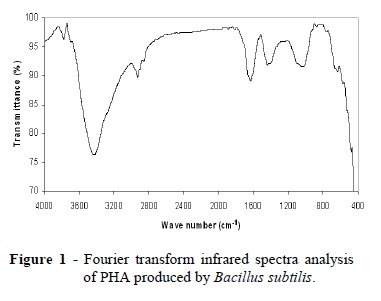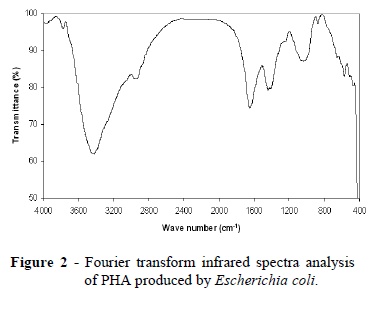The aim of this work was to study the production of polyhydroxyalkanoates (PHAs) by Bacillus subtilis and Escherichia coli isolated from the industrial contaminated soil samples using cane molasses as an inexpensive substrate. The amount of PHA accumulated followed a similar pattern to its growth for each of treatment indicating a growth-related production, yielding maximum PHA production of 54.1 and 47.16% for B. subtilis and E. coli, respectively after 96 h cultivation in the medium containing 6 and 8 % molasses, respectively and decreased thereafter. The growth and PHA yields were improved by introducing 1% ethanol into the molasses medium. Ammonium sulphate and ammonium nitrate at a concentration of 1 g/L served as the best nitrogen sources for bacterial growth, allowing B. subtilis and E. coli cells to accumulate PHA up to 62.21 and 58.7%, respectively. The optimum environmental conditions that influenced the PHA production by the two strains were inoculum concentration of 8%, pH 7.0 and a temperature of 35°C. The functional groups of the extracted PHA granules were identified by Fourier transform infrared (FTIR) spectroscopy analysis.
Polyhydroxyalkanoates; Cane molasses; infrared spectroscopy







